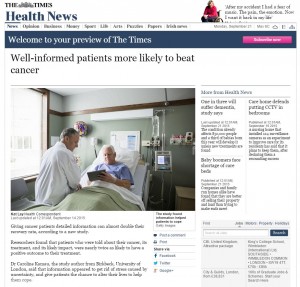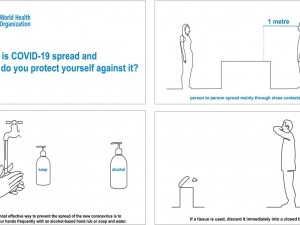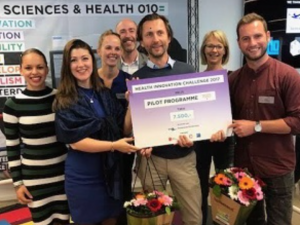“Cancer treatment success nearly doubles when equipping patients with info about their disease”
Betere patientenvoorlichting door het verstrekken van informatie aan kanker patiënten over hun ziekte, de behandeling en de impact op hun leven en werk, verdubbelt bijna hun kansen op een positief resultaat van de behandeling. Aldus de uitkomsten van een zeer recente studie van Birkbeck, University of London.
Het onderzoek, gepubliceerd in BMJ Supportive & Palliative Care, geeft aan dat het beter voorlichten van kankerpatiënten met betere patientenvoorlichting helpt om onzekerheid en stress te verkleinen.
De studie werd uitgevoerd door Dr. Caroline Kamau van Birkbeck de Afdeling Organisatiepsychologie.
Zij heeft data geanalyseerd van bijna 3.500 Britse patiënten met kanker.
De gegevens zijn afkomstig uit het Britse ministerie van Volksgezondheid de National Cancer Patient Experience Survey, 2013-2014.
Abstract
Background Many patients with life-limiting illnesses continue to work because of financial reasons and because work provides good psychosocial support. A lack of appropriate advice/support through patient education could, however, make having a job detrimental to well-being (eg, symptom worsening).
Aim This study investigated the frequency with which patients received information that empowers their understanding of their condition, treatment, side effects of treatment and the likely impact on occupational functioning.
Design
A cross-sectional study.
Setting/participants
An analysis of survey data from 3457 patients with cancer in employment.
Results
Logistic regression showed that patients who received information about the impact of cancer on work life or education are 1.72 times more likely to have a positive treatment outcome. Patients who receive written information about the type of cancer are 1.99 times more likely to have a positive treatment outcome. Also, patients who receive written information before a cancer-related operation are 1.90 times more likely to have a positive treatment outcome. Information about the side effects of cancer treatment produces worse odds of a positive treatment outcome (0.65–1). A stepwise logistic regression analysing the effects irrespective of current employment status in 6710 patients showed that preparing them produces nearly twice better odds of cancer treatment responsiveness.
Conclusions
Palliative care teams should consider ways of actively advising patients who work. Whereas the results showed evidence of good practice in cancer care, there is a need to ensure that all working patients with potentially life-limiting illnesses receive similar support.






